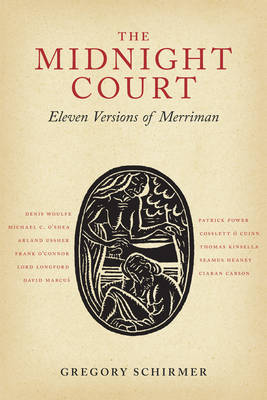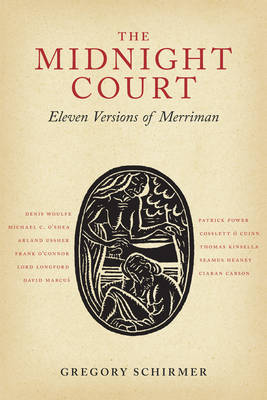
- Afhalen na 1 uur in een winkel met voorraad
- Gratis thuislevering in België vanaf € 30
- Ruim aanbod met 7 miljoen producten
- Afhalen na 1 uur in een winkel met voorraad
- Gratis thuislevering in België vanaf € 30
- Ruim aanbod met 7 miljoen producten
Zoeken
€ 41,95
+ 83 punten
Omschrijving
Many translations into English verse of Brian Merriman's celebrated eighteenth-century narrative poem Cúirt an Mheán Oíche (The Midnight Court) have been made by Irish poets over the past two centuries. All translators have tackled the problem of being Irish poets working in English and drawing upon the Irish-language tradition in various ways, as well as having to negotiate between Merriman's world and their own historical moments. This tension in translation is the major focus of The Midnight Court: Eleven Versions of Merriman. The author sets out the problems of translation in an introductory chapter and gives a general note on the tradition of translating Merriman's poem. He then focuses attention on eleven translators, who are given a chapter each for discussion: Denis Woulfe, Michael C. O'Shea, Arland Ussher, Frank O'Connor, Lord Longford, David Marcus, Patrick C. Power, Cosslett Ó Cuinn, Thomas Kinsella, Seamus Heaney and Ciaran Carson. As the book progresses, a picture forms of a layering in the life of the translated poem as translators rescue overlooked themes or stylistic approaches. This interesting undertaking, with its keen scrutiny of the text on a line-by-line basis, brings something new to Merriman scholarship, with examples of the myriad options available to the translator that illuminate nearly two hundred years of poetic translation and exchanges across two cultures.
Specificaties
Betrokkenen
- Auteur(s):
- Uitgeverij:
Inhoud
- Aantal bladzijden:
- 256
- Taal:
- Engels
Eigenschappen
- Productcode (EAN):
- 9781843516392
- Verschijningsdatum:
- 30/08/2015
- Uitvoering:
- Hardcover
- Formaat:
- Genaaid
- Afmetingen:
- 156 mm x 234 mm
- Gewicht:
- 548 g

Alleen bij Standaard Boekhandel
+ 83 punten op je klantenkaart van Standaard Boekhandel
Beoordelingen
We publiceren alleen reviews die voldoen aan de voorwaarden voor reviews. Bekijk onze voorwaarden voor reviews.











